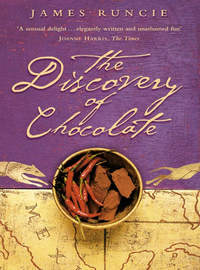Czytaj tylko na Litres
Książki nie można pobrać jako pliku, ale można ją czytać w naszej aplikacji lub online na stronie.
Czytaj książkę: «The Discovery of Chocolate: A Novel»
Coś poszło nie tak, spróbuj ponownie później
8,68 zł
Gatunki i tagi
Ograniczenie wiekowe:
0+Data wydania na Litres:
28 grudnia 2018Objętość:
231 str. 2 ilustracjiISBN:
9780007406906Właściciel praw:
HarperCollins